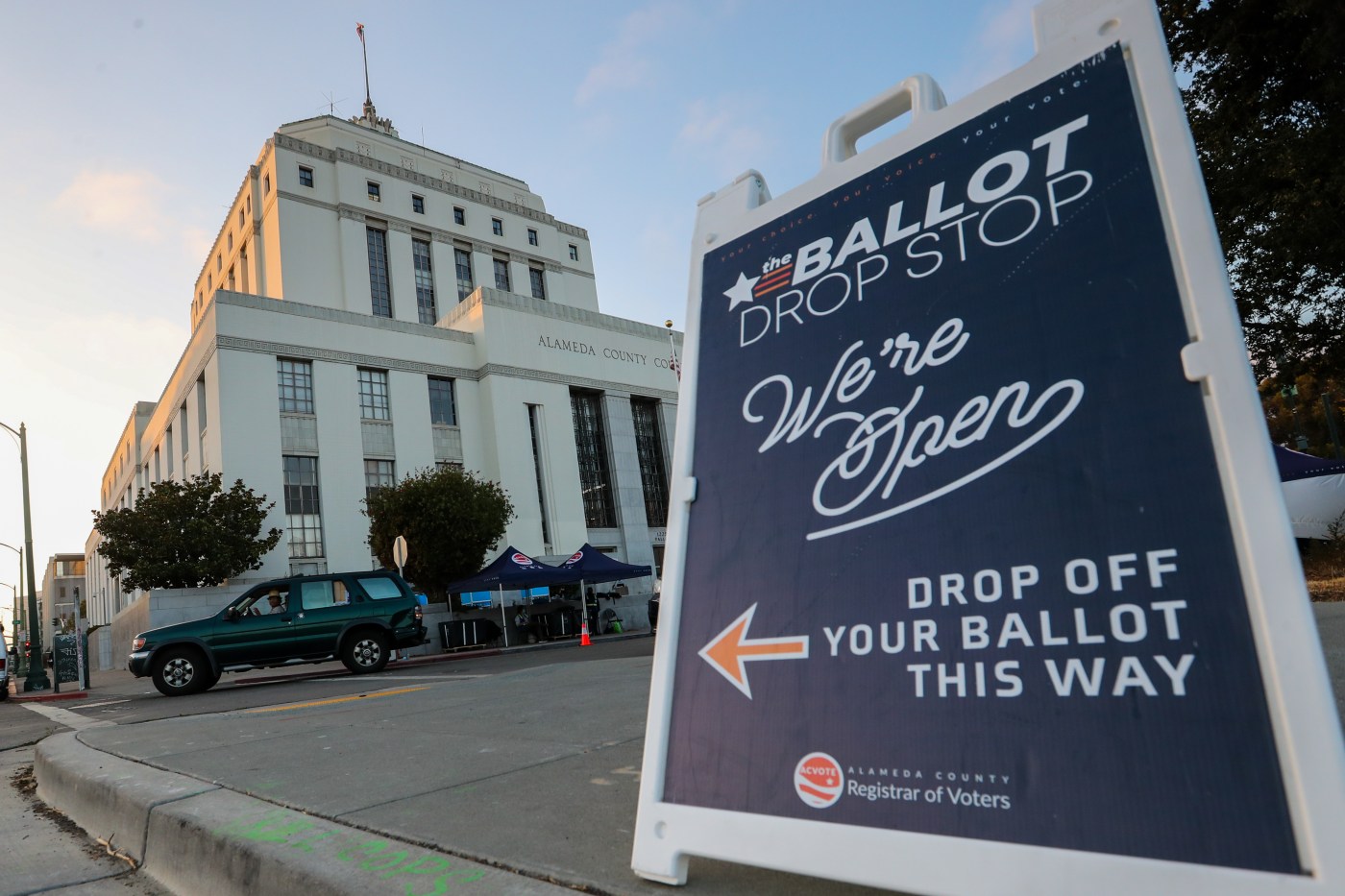
Alameda County Supervisors David Haubert and Nate Miley proposed raising — and in some circumstances, doubling — the campaign contribution limits for county elections on Tuesday, but failed to find enough support from their colleagues amid public pushback.
The change would have increased the contribution limit for an individual from $20,000 to $40,000 for district elections, and from $40,000 to $60,000 for countywide elections. Its backers called it a response to the growing financial demands of political campaigns. However, opponents argued that if the increase was approved, it would allow special interests to exert undue influence over less wealthy candidates.
Related Articles
Letters: Alameda County wants to put more money into politics
Ishii: Public financing opened the door for me. A state Senate bill can do that for others.
Key supporter of recall against Alameda DA Pamela Price facing arbitration, lawsuit over unpaid bills
Evan Low paid $106,000 ethics violation fine with campaign donations
The proposed new limits far exceeded the default limit in California and neighboring counties in the Bay Area. The default limit on campaign contributions for city and county races in California is $5,900; Contra Costa County’s limit is $1,675, and the max contribution in Santa Clara and San Mateo Counties is a mere $1,000. Even in the governor’s race, an individual can donate a maximum of $39,200 per election – in both the primary and general election – to a candidate under state law.
“We know that money controls outcomes. And why else, when they have the highest (campaign funding allowances) in the entire Bay Area, why would they be trying to double it?” said Bob Britton, a representative for the nonprofit Interfaith Coalition for Justice in our Jails. “I’ve contributed a few hundred dollars to county supervisor elections, but I don’t get an audience because I can’t afford to contribute thousands of dollars.”
Though the campaign finance portion of the proposal was defeated, the Board of Supervisors did agree to consider a subsection that would enable candidates to open multiple campaign committees at a future meeting.
“When we used to campaign, we only had to worry about mail and staff and a consultant. The cost of mail has gone up astronomically,” Supervisor Nate Miley told Bay Area News Group. “But the other component is digital communications. If you’re not campaigning on those platforms, you’re not reaching everybody.”
While federal elections are often flush with cash, the pool of donations for local elections is far smaller, according to Peter Loge, the director of the School of Media and Public Affairs at George Washington University. He previously worked as the chief of staff for Sen. Edward Kennedy and has studied the evolution of elections and campaign financing.
“An individual can make a much bigger impact on a local election than they can on a national election,” Loge said. “And local offices impact our daily lives much more than federal offices do.”
Loge added that larger donors may exert influence on the elected officials they’ve supported, highlighting personal issues of concern or framing debates in ways that align with their interests and currying favor over less wealthy or organized groups.
“Our $20,000 limit is already way too high,” Britton said at Tuesday’s board meeting. “We ought to be talking about lowering the $20,000 limit, not raising it to $40,000.”
But “elections cost money,” Loge said.
“If it’s going to cost me $100,000 to run for office… I can either make 100,000 phone calls to raise $1 from 100,000 people, or I can make one phone call and raise $100,000 for one guy,” Loge said. “If I’m making 100,000 phone calls, I’m not talking to (constituents) about roads, schools, climate, gun violence or the other issues facing the county.”
Miley said raising the campaign contribution limit would enable local politicians to combat special interests’ political action committees, which can raise an unlimited amount of money.
“It’s not about making things unfair; it’s just to make sure that you can be competitive,” Miley told Bay Area News Group. “I can’t make it any plainer to folks, unless they’re in my shoes, how costly it is to run a campaign. The cost of campaigning has gone way up.”